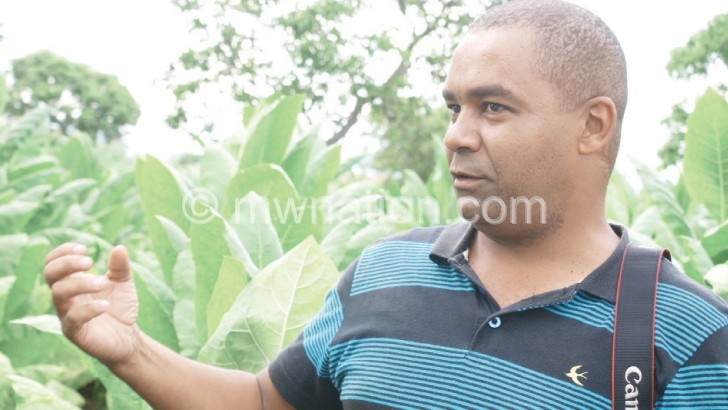Glories of contract farming
An emerging system in which farmers produce tobacco in contract with buying firms is sometimes derided as modern-day slavery, with capitalists reaping big where they sow little.
It traps tobacco farmers in a vicious circle of poverty and sorrow, opponents of the so-called contract farming say.
But to Limbikani Mandere, a tobacco farmer in Traditional Authority (T/A) Dzoole in Dowa, there is joy in the much-criticised Integrated Production System (IPS) if farmers follow the tips agricultural extension specialists provide.
“You cannot reap maximum benefits from any system if you do not follow recommended methods. Some farmers sell their farm inputs, including fertiliser, and later complain that they are being ripped off,” he says.
Early this year, an analysis by the International Food Policy Research Institute (IFPRI) indicated that the success of contract farming in the country was partly hampered by side-selling, uncoordinated flow of information and defaulting farmers.

Ultimately, the farmers, who expect to gain from their toils, are seen as losers and victims.
Their missteps, which accumulate to erode their profit, are less considered.
And the analysts at IFPRI also found that contractual arrangements also contributed to reduced transfer costs and rejection rates for tobacco produced by the contract farmers.
“Moreover, to the buying company, contract farming contributes to reduced monitoring costs, as farmers work in groups and monitor each other’s activities, such as baling of the tobacco leaf, which ensures better quality tobacco being offered under contract,” the findings read in part.
According to Mandere, no farmer can achieve maximum gains if they sell some farm inputs offered by the profit-seeking tobacco companies.
His returns vindicate his take.
“This year, I received fertiliser, seed, chemicals and other essentials from Alliance One. From nine hectares, I make a profit of K15 million,” he brags.
The farmer, who has just bought a car, says he would have done everything on his own, but working together with his colleagues in a scheme helped him access extension services provided by the tobacco company.
“In this way, there is more caution when caring for my leaf. This is usually not the case when farmers do things independently,” says Mandere.
He employs almost 25 workers, including two minibus drivers.
He is just one of thousands of Alliance One’s farmers benefiting from IPS.
Godfrey Phaso of Khuwi Scheme in Ntchisi says he does not understand why some farmers claim that tobacco companies are short-changing them.
“I get wood for my flue-cured tobacco, tobacco seed, fertiliser, extension services, and easy access to markets. This way, I produce quality leaf which guarantees massive profits at the end. Of course, the tobacco company also needs profits,” he says.
Since joining the system four years ago, Phaso has experienced a dramatic change in his livelihood and the way he conducts his farming business.
Things that are often associated with an urban few are available in my house.
“Besides, I am sending my children to school, paying fees without any difficulty. In general, I am living a fine life because tobacco farming is easier now,” Phaso says.
At a recent event hosted by farmers affiliated to Alliance One in T/A Kalumo, Dowa, their chairperson Elliford Chikuse said over 100 growers in attendance were “just a drop in an ocean”.
He pointed at 42 vehicles and 16 motorcycles some celebrated farmers from Dowa and Ntchisi had brought together in a typical display of their success.
“What would our lives be without IPS?” Chikuse asked. “We are benefiting from the contract system and these assets are our evidence.”
He had a message for those who still believe IPS is exploitative.
“There is joy in the despised system. You can only fully experience it from within.” na





